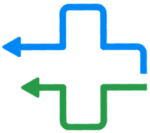Neurological Infections
Department of Neurological Infections
Neurological infections can be rapid in onset, such as bacterial meningitis, causing fevers, acute headache, mental status changes, and must be considered emergencies. Other slower growing infections can be brain abscesses that have spread locally from dental, sinus or ear infections. Symptoms of a brain abscess can be a headache and possibly focal weakness or visual changes. Patients who have had neurosurgery can also develop infections postoperatively with signs of headache or drainage from the wound. Treatment of any of these often requires collaboration amongst the neurologists, neurosurgeons, and ID specialists.
Types
1.Meningitis: Inflammation of the meninges, often caused by bacteria or viruses.
2.Encephalitis: Inflammation of the brain tissue, commonly viral in origin.
3.Brain Abscess: Collection of infected material in the brain, usually caused by bacteria.
Diagnosis
1.Clinical Evaluation: Assessment of symptoms such as fever, headache, altered mental status, or neurological deficits.
2.Imaging Studies: CT scans or MRI to visualize the brain and identify abnormalities.
3.Lumbar Puncture (Spinal Tap): Collecting cerebrospinal fluid (CSF) for analysis, which can reveal signs of infection.
Treatment
1.Antibiotics or Antiviral Medications: Depending on the causative agent.
2.Antifungal Medications: For fungal infections.
3.Supportive Care: IV fluids, pain management, and other supportive measures to aid recovery.
Neurological Infections Overview
- Surgery Time - 8 hours
- Stay in the country - 3 days
- Rehabilitation - 30days
- Best price - 1800$
- Surgery Time - 8 hours
- Stay in the country - 3 days
- Rehabilitation - 30days
- Best price - 1800$
- Surgery Time - 8 hours
- Rehabilitation - 30days
- Best price - 1800$
- Best price - 1800$
- Surgery Time - 8 hours
- Stay in the country - 3 days
- Rehabilitation - 30days
- Best price - 1800$
- Surgery Time - 8 hours
- Rehabilitation - 30days
- Rehabilitation - 30days
- Best price - 1800$
- Surgery Time - 8 hours
- Stay in the country - 3 days
- Rehabilitation - 30days
- Rehabilitation - 30days
- Surgery Time - 8 hours
- Surgery Time - 8 hours
- Rehabilitation - 30days
- Best price - 1800$

